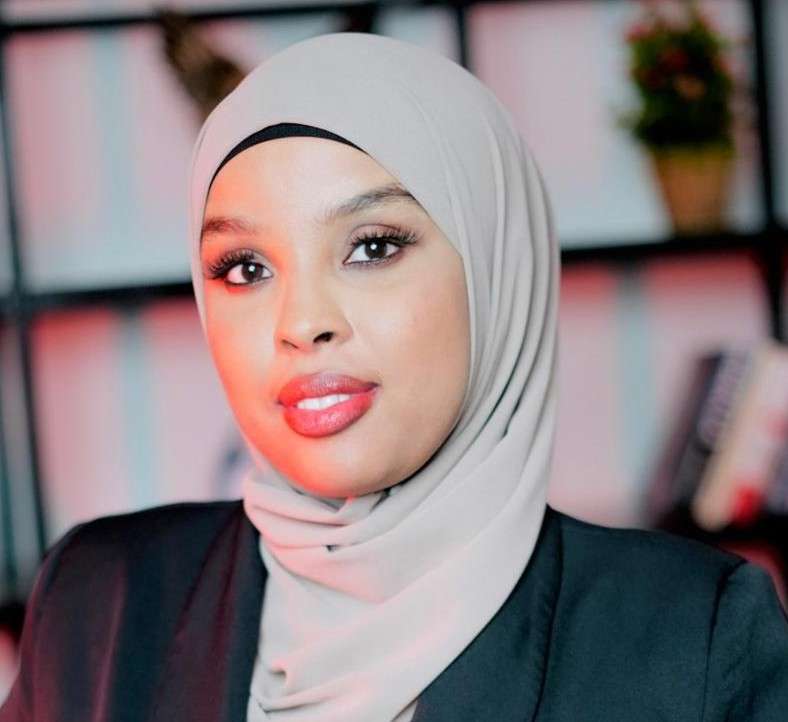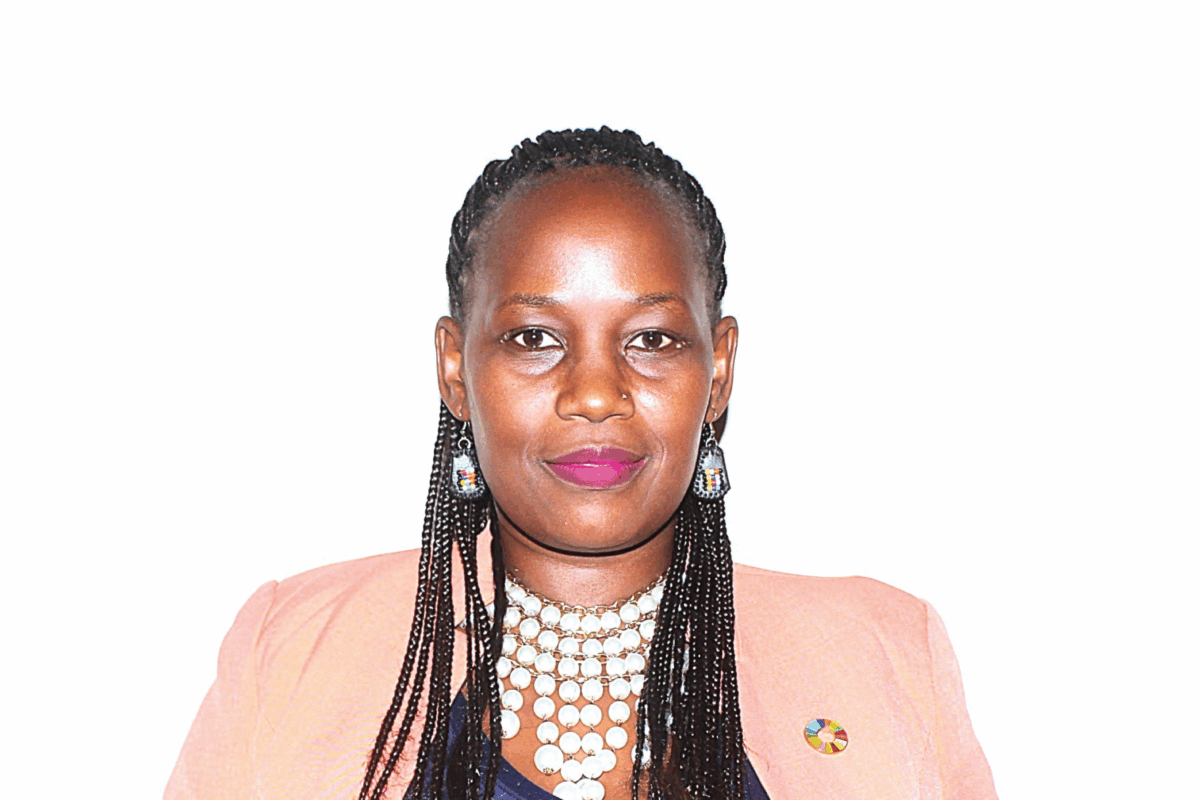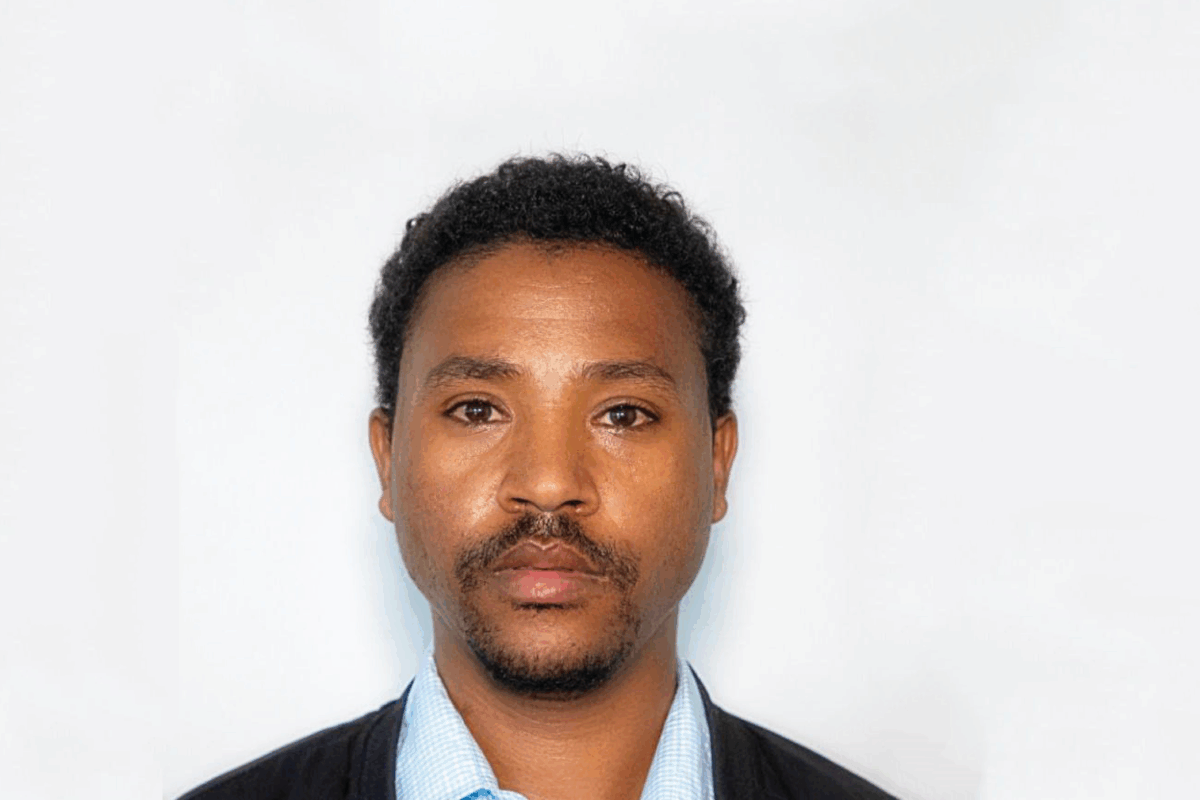Naima Arabow is a Mogadishu based journalist with over seven years of professional experience in reporting and documentary production. Her work focuses on humanitarian issues, particularly those affecting marginalised and vulnerable communities in conflict-affected areas. Naima has produced in-depth stories that shed light on topics such as displacement, gender inequality, access to healthcare and education, and the impact of insecurity on civilians. She has worked with local and international media outlets, and collaborated with civil society actors to document stories that drive awareness and change. Through compelling storytelling, she not only informs but also inspires dialogue, empathy, and action especially in fragile contexts like Somalia.
Sofia Ali
Sofia Ali is an award-winning multimedia journalist with over 17 years of experience in the industry. She has built a dynamic career at the intersection of media, economics, and audience engagement delivering insightful business news and economic analysis across TV, print, radio, and digital platforms. Her expertise spans content development, strategic communication, crisis management, and audience engagement. She has led editorial teams, anchored influential business shows, and developed robust business news coverage. She currently serves as the Senior Business Reporter and Presenter at The Standard Group, working across television, The Standard newspaper, its digital platforms, and hosting business programs on radio.
Telesphore Kaberuka
Telesphore Kaberuka, Rwanda |
Telesphore Kaberuka has over 15 years of experience in multimedia reporting, investigative journalism, and editorial leadership. A bachelor’s degree holder in Journalism and Communication from Institut Catholique de Kabgayi, he serves as Editor-in- Chief at Family Magazine, heza.rw and Renaissance Info, where he mentors young
reporters and leads impactful storytelling. Fluent in Kinyarwanda, English, French and Kiswahili, Kaberuka has contributed extensively to numerous radio, online and print platforms across the region. His investigative work spans climate change, health, corruption, judicial transparency, and environmental hazards, earning him multiple journalism grants, including from Pax Press, the Rwanda Environment Management Authority, the Legal Aid Forum, and the Thomson Foundation. He is also a freelance contributor for different media outlets. Through the CIPESA fellowship, Kaberuka aims to get skills to explore and amplify stories on equitable access to Digital Public Infrastructure in Rwanda and the region.
Samuel Abate
Samuel Abate has six years of experience in journalism and currently works at Ethio Negari. He has previously worked with various media institutions, including the Ethiopian News Agency, Ethio FM 107.8 Radio, and Al-AIN News.
Over the course of his career, Samuel has produced numerous news reports and related content focused on digital infrastructure, innovation, and technology. He is particularly interested in specialising in technology and innovation, as these areas are essential for enhancing transparency, minimising corruption, and improving service delivery. He holds an MA in Journalism and Communication from Addis Ababa University.
Kampire Nadine Temba
Kampire Nadine Temba, DR Congo |
Kampire Nadine Temba is a feminist, lawyer and journalist. She is also the co-founder and the coordinator at Afia-Amani Grands-Lacs, a community based online media outlet that focuses on content pertaining to health, peace, and natural disaster management. The media outlet also pushes back against misinformation, disinformation, and hate speech online in the Great Lakes region. Before founding Afia-Amani Grands-Lacs, she served as media consultant for various regional and international organisations such as Internews which have been operating in Eastern DRC.
She is a 2023 CIPESA Fellow on Disinformation and has a particular interest in human rights and digital rights with a special focus on freedom of expression, internet governance, regulation and policy, as well as digital transformation.



